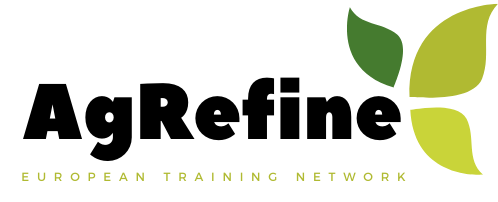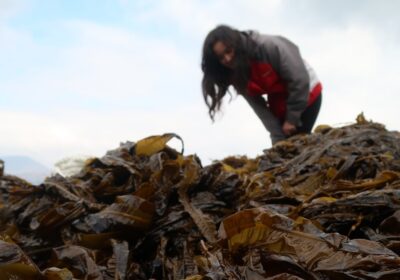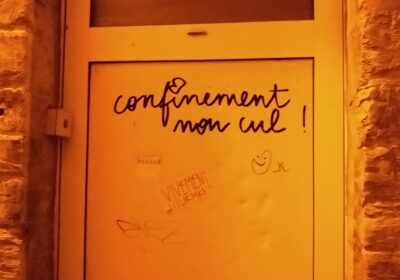Climate change, environmental degradation, resource wars, economic crises, feeding a rapidly increasing human population… The list of challenges that our generation faces, is long. Many of these challenges seem to be rooted in the use of fossil resources like mineral oil and gas. We have extracted and burnt so much of the carbon-based black gold that we have disrupted the entire global carbon cycle, the natural recycling of bound carbon from air to plants and back to earth. The mission is more or less clear: We as a global society need to dramatically limit our use of fossil resources. However, there are different ideas around on how to get there.
Charles C. Mann’s “The Wizard and the Prophet”[1] was my evening reading during the start of the Covid-19 pandemic and resulting lock-down evenings at home. In this accessible and well-written book, Mann distinguishes two main ideas on how to solve current global environmental challenges: Wizards believe in human ingenuity: We will solve challenges by new, ingenious innovations. Others, labelled Prophets, see the solution in radically restricting ourselves, re-defining what we regard as economically valuable and consequently de-grow global economies.
This conflict line is also visible in the biobased transition, the turn away from fossil resources to materials based on plants and algae as well as energy from renewable sources. Wizards develop biorefineries to try to maintain our current consumption standards, while radically decreasing our consumption’s environmental footprint. Great innovations and increasing efficiency provide the promise of industrial decarbonisation, rural development and sustainable development: A good life for billions of people on renewable (and thus theoretically never-ending) resources. In academic literature, many articles on process designs of technical bioeconomy innovations seem to follow this view.[2]
Prophets, on the other hand, are sceptical about the ghosts conjured by Wizards. They forecast the way to the promised land of sustainability in a radical re-organisation of our economic lives, of our values and our relationship with Mother Earth: Share more, especially globally; re-think what we define as economic success (value the creation of happiness rather than dollars!); consume better and more consciously. There is enough for everyone, we just have to distribute our enormous wealth better and abstain from some malign activities, of which we cannot turn back environmental consequences. Especially breaking with the paradigm of maximizing the Gross Domestic Product (GDP) as indicator for economic success and its assumed prediction of human welfare is regarded as condition to develop more sustainable societies. Following this view also opens up opportunities for “a much broader sustainability debate that does not just consider technology, population and lifestyles but also social justice, democracy, meaning of life (happiness) and well being”.[3]
The conflict between Wizards and Prophets is not only going on quite some time, it also seems to be particularly sticky, “intractable” and resistant to be solved by the production of new facts and knowledge, as Donald Schön and Martin Rein put it in “Frame Reflection”, their classic of governance literature from 1994.[4] Schön and Rein call this kind of conflict a “policy controversy”, a particularly deep-rooted conflict, because it stems from fundamentally different lenses (they call them “frames”) to evaluate freshly incoming facts: The same information of a growing biobased industry is interpreted as a sign of success by Wizards, while being regarded as an omen of capitalist exploitation of nature by Prophets.
“In my point of view, controversies are not always bad news”
How is it possible to bring together Wizards and Prophets to fight the demons of 21st century challenges? Is it possible at all? Or is it in fact even necessary to resolve this controversy? In my point of view, controversies are not always bad news: We might learn from putting on the shoes of the other side of a controversy (Schön and Rein call this “frame reflection”) and hereby generate new ideas. Controversies might also result in people getting to know one another who were previously unaware of each other and hereby stimulate innovation. Hence, controversies might bring in dynamic into the biobased transition to at least tackle the one problem of depleting mineral oil and gas resources. If we actually want to change current practices, unwritten rules and prevailing values, we might want to avoid a stalemate situation of paralyzing conflict, though. The result of actively listening to the multiple sides of controversies would be a more reflexive and more broadly accepted form of innovation within the biobased transition.
“In order to handle the challenges of our generation, it will not be enough to only produce new technological innovations, facts and knowledge.”
Governments might find a suitable role for themselves in functioning as referee and moderator in such policy controversies. Although not being apolitical or neutral, governments have the legitimate capacities to include currently marginalized actor groups and equilibrate power relations, so that every voice is heard. By this, governments could stimulate learning from controversies while mitigating situations of enduring, paralyzing conflict. We might call this form of governing controversy governance.[5] We need to design working rules and governance arrangements together with the people actually involved in controversies in the biobased transition: stakeholders from industry, civil society, and nature associations. In order to handle the challenges of our generation, it will not be enough to only produce new technological innovations, facts and knowledge. To slay the demons of climate change, environmental degradation and unsustainable consumption, I am convinced that we need both Wizards and Prophets on our side.
Title image credit: Jean Wimmerlin | Unsplash

[1] Charles C. Mann (2018): The Wizard and the Prophet – Two groundbreaking scientists and their conflicting visions of the future of our planet. Picador. ISBN: 978-1-5098-8417-9
In forty years, the population of the Earth will reach ten billion. Can our world support so many people? What kind of world will it be? In this unique, original and important book, Charles C. Mann illuminates the four great challenges we face – food, water, energy, climate change – through an exploration of the crucial work and wide-ranging influence of two little-known twentieth-century scientists, Norman Borlaug and William Vogt.
Image & intro text credit: Pan Macmillian
[2] Pfau, S., Hagens, J., Dankbaar, B., & Smits, A. (2014). Visions of Sustainability in Bioeconomy Research. Sustainability, 6(3), 1222–1249. https://doi.org/10.3390/su6031222
Reviewing scientific contributions on bioeconomy, this article crafts out and categorizes different perceptions within the scientific community on the sustainability of the biobased transition.
[3] Kerschner, C., Wächter, P., Nierling, L., & Ehlers, M. H. (2018). Degrowth and Technology: Towards feasible, viable, appropriate and convivial imaginaries. Journal of Cleaner Production, 197, 1619–1636. Quote from p. 1620. https://doi.org/10.1016/j.jclepro.2018.07.147
This article is also the editorial of a Special Issue on Degrowth and Technology in the Journal of Cleaner Production with 26 contributions on the relationship between technology and society.

[4] Donald A. Schön & Martin Rein (1994): Frame Reflection – Toward the Resolution of Intractable Policy Controversies. Basic Books. ISBN: 0-465-02512-9
Why are controversies about such issues as abortion, welfare, persistent poverty, and environmental destruction so intractable? As anyone who has ever engaged in or tried to settle an argument on highly charged issues knows, facts rarely persuade in such situation. This innovative approach to intractable policy controversies shows how “reframing” the issues can succeed where simply appealing to facts often fails.
Image & intro text credit: Perseus Books Group | John Chung
[5] Metze, T. (2018). Fuel to the fire: Risk governance and framing of shale gas in the Netherlands. Extractive Industries and Society, 5(4), 663–672. https://doi.org/10.1016/j.exis.2018.09.016
Well-written and interesting article about collaborative risk governance strategies in the Dutch energy transition, introducing the concept of controversy governance.




